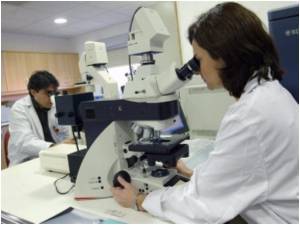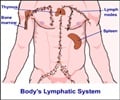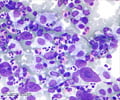Burkitt's lymphoma is one of the most aggressive tumors affecting humans. Multiple alterations in genes that regulate cell proliferation rate explain its aggressive behavior.

The new finding concentrates on a genetic locus -- a piece of DNA with one or more genes which is the specific location of a gene or DNA sequence on a chromosome -- called INK4a/ARF locus. This locus encodes two important tumor suppressor genes, p16 and p14, and is usually inactivated in human tumors by genetic mutations. By controlling p53 and Rb pathways, p14(ARF) and p16(INK4a) inactivation allow the cells to overcome anti-oncogenic barriers and proliferate in an uncontrolled manner.
Researchers found that in Burkitt`s lymphoma, the locus is genetically unchanged but the product proteins are inactivated by epigenetic and posttranscriptional mechanisms. The research was done by the Sbarro Health Research Organization Center for Biotechnology, a nonprofit research center for cancer, cardiovascular and diabetes research, located in the College of Science and Technology at Temple University in Philadelphia, PA, and the University of Siena in Siena, Italy and published in Cell Cycle.
"We discovered a completely new mechanism for INK4/ARF protein inactivation," said Annalisa Roberti, lead author of the paper. "Since in Burkitt`s lymphoma these two proteins are not inactivated at the genetic level, their inactivation could be pharmacologically reversible. The reactivation of p16 and p14 in our model and our ability to inhibit cell proliferation and induce apoptosis through the Rb- and p-53 pathways opens new prospects for the understanding and treatment of Burkitt's lymphoma."
"This is an additional piece of the complex puzzle in which the Rb family, which includes Rb2/p130, plays an important role. The new discovery in our laboratory presents additional evidence that more and more, Rb is becoming to be viewed as a guardian of our genome," notes Antonio Giordano, M.D., Ph.D., Founder of SHRO and Director of the Sbarro Institute for Cancer Research and Molecular Medicine.
Source-Eurekalert














